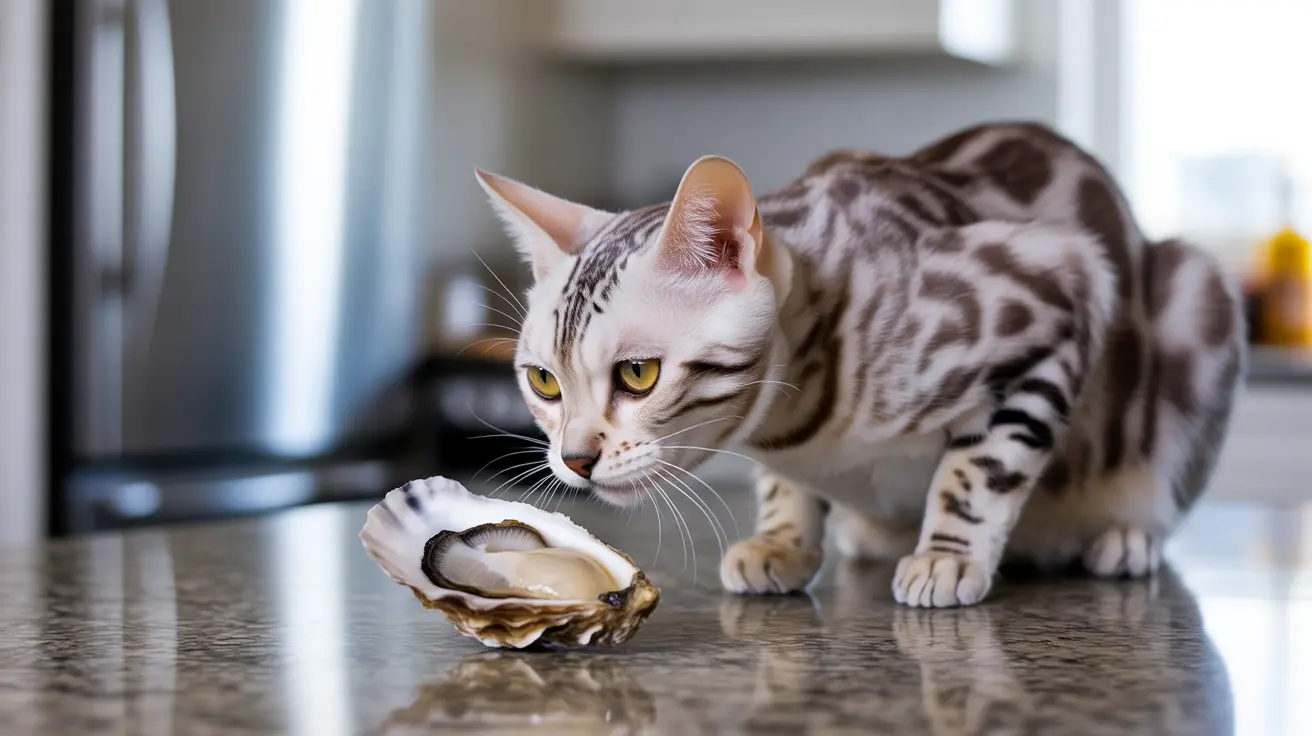The Raw Truth: Why Raw Oysters Are Dangerous for Cats
Raw oysters pose significant health risks to cats and should never be offered as a treat or meal. These risks include:
Bacterial and Viral Threats
Raw oysters can harbor dangerous bacteria like Vibrio vulnificus and viruses such as norovirus. As filter feeders, oysters concentrate these organisms in their tissues, making them particularly hazardous when consumed raw.
Thiaminase Concerns
Raw oysters contain thiaminase, an enzyme that breaks down thiamine (vitamin B1) in cats. Thiamine deficiency can lead to serious neurological problems in felines, making raw oysters particularly dangerous.
Cooked Oysters: A Safer but Limited Option
While fully cooked oysters are significantly safer than raw ones, they should still be approached with caution:
Guidelines for Cooked Oysters
- Only serve plain, fully cooked oysters
- Avoid all seasonings, especially garlic and onions
- Offer very small portions (pea-sized) only occasionally
- Never feed shells or shell fragments
The Risks of Canned and Seasoned Oysters
Commercial oyster preparations come with their own set of concerns:
Sodium Content
Canned oysters typically contain high levels of sodium, which can lead to dehydration and salt toxicosis in cats. Even small amounts of these preserved oysters can be problematic for feline health.
Harmful Additives
Seasoned oyster preparations often contain ingredients toxic to cats, such as garlic and onions. These common flavorings can cause severe health issues in felines and should be strictly avoided.
Signs of Oyster-Related Illness in Cats
Watch for these symptoms after oyster consumption:
- Vomiting or diarrhea
- Lethargy or weakness
- Loss of appetite
- Excessive thirst
- Neurological symptoms (in cases of thiamine deficiency)
Safer Seafood Alternatives for Cats
Instead of oysters, consider these safer options:
- Small amounts of fully cooked, plain white fish
- Commercial cat treats formulated with fish
- Veterinary-approved fish oil supplements for omega-3 benefits
Frequently Asked Questions
Can cats safely eat oysters, and should they be cooked or raw?
Cats should never eat raw oysters due to bacterial and enzymatic risks. While plain, fully cooked oysters are safer, they should only be offered in tiny amounts as an occasional treat to healthy cats.
What are the health risks of feeding raw oysters to my cat?
Raw oysters can contain harmful bacteria, viruses, and the thiaminase enzyme that destroys vitamin B1. These risks can lead to severe illness, including gastrointestinal problems and neurological issues.
How do I know if my cat is sick after eating oysters, and when should I see a vet?
Watch for symptoms like vomiting, diarrhea, lethargy, weakness, or loss of appetite. Contact a veterinarian immediately if your cat has eaten raw oysters or shows any of these symptoms after eating cooked oysters.
Are canned or seasoned oysters safe for cats to eat?
Canned and seasoned oysters are not safe for cats due to high sodium content and potentially harmful additives like garlic and onions. These preparations should be avoided entirely.
What are healthier and safer seafood treat alternatives to oysters for cats?
Better alternatives include small portions of plain, cooked white fish, commercial fish-based cat treats, or veterinary-approved fish oil supplements. Always maintain a balanced, commercial cat food diet as the primary nutrition source.






